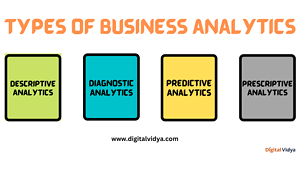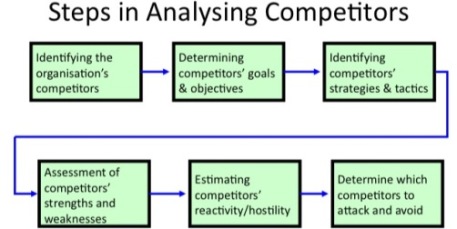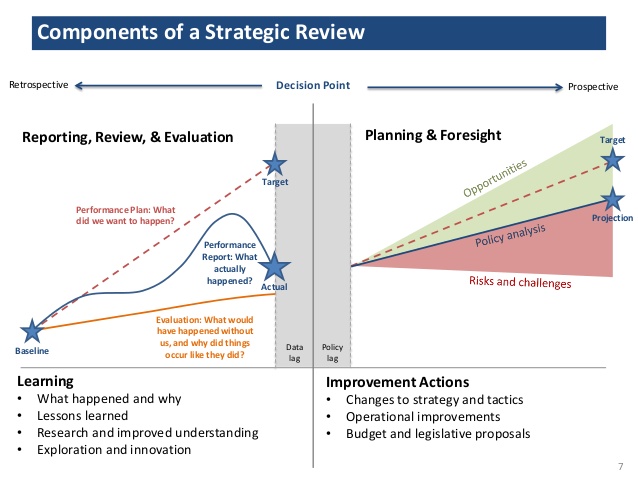Business Analysis is a technique in which the business will take every available information. Be it regarding the market or their potential customers to develop a marketing plan. Business Analysis is the pin that holds the business together.
Without it, you are running your business on intuition, which could be pointless. It will also show you how well your business stands out by comparing it to competitors in a similar market using your current marketing techniques.
It will also give you an analysis of your previous marketing campaigns. The analysis will show you results upon which you can see if your achievements are excellent. If not, you can always change your settings and re-do the same. It will show every single progress and result.
What is Business analytics?
Business analytics is a continuous process of analyzing the past or historical data of a business, identifying what the current trends running in the market from those available data are, and then identifying the root causes and profitable elements which are affecting the business in good or bad ways are, and then making a good business plan accordingly.
In ancient times we did not have any way to check the cause of business success or failure. Still, in the new world of technology, we can get the elements affecting our business and check which elements are valuable for our businesses.
Some businesses consider those valuable elements assets because some strategies don’t work well like the old strategy becomes ineffective. After all, the customers’ needs are changing continuously.
For example: For some time, one thing is trending, and the following month some other thing is trending.
Suppose today’s customers want a smartphone with a good-quality camera. In that case, companies will first make smartphones with good-quality cameras because they analyzed the company data and learned that excellent cameras are trending and have good sales numbers.
Then after some time, people want 144Hz high refresh rate phones for lag-free screens then companies will make phones with high refresh rate screens.
All this is possible because the businesses’ historical data are analyzed using business analytics techniques. A good data analyst must find valuable information from those data that will benefit the company.
What are the 4 types of Business Analytics?
4 types of Business Analytics are:
1. Descriptive Analytics
Descriptive analytics is one of the most important types of business analytics. In this, the historical data is analyzed, and valuable information is filtered out from that extensive data, which will help make a good business plan.
For Example, Sales reports for the financial year 2022-2023, google analytics, etc., are some of the best examples to understand these analytics.
This type of business analytics is done mainly in two ways – Data mining and Data Analysis.
- In Data mining, extraction of valuable data from raw data is done, which will help make the business plan.
- Data analysis is the method or technique used to find that valuable information.
Descriptive analysis is usually shown in the form of bar graphs, pie charts, or any other data visualization technique that can be used. These data will act as the central pillar for making sound business strategies.
2. Diagnostic Analytics
In Diagnostic analytics, more in-depth analysis of the data is done. This also analyzes past data similar to descriptive analysis, but a more detailed analysis is done and finds the answer to why something happened.
For example, During the business analytics process of analyzing the data, the analyst learned that a particular product’s sales went down in October. So this diagnostic analysis will help understand why the sales decreased and the root causes of the decrease in sales numbers.
In this type of analytics, detailed analysis will be done other than just extracting general helpful information. That’s why it is also known as Root cause analysis, which is also a significant part of business analytics. Without this analysis, why something happened can’t be known.
3. Predictive Analytics
Image source: Harvard Business School
Predictive analytics is the most advanced form of business analytics. In this type of business analytics, all the data collected from descriptive and diagnostic analytics are gathered in one place then future predictions are made based on those past data. That’s why this analytics is known as predictive analytics.
For example, A clothing brand decided to make more sweatshirts than hoodies because the brand analyzed the past data that from the last 3 years, sweatshirts are in trend, so maybe this year, too, sweatshirts will have high demand.
All the decisions were made by analyzing the past data, then predictions were assessed for the future, and a final decision was made.
Predictive analysis is a type of assessment in which past data is assessed, and then that data is fetched into the machine learning algorithms. Then, those algorithms make the best possible guesses to predict what can happen in the future.
4. Prescriptive Analytics
Prescriptive analytics uses all the data gathered from descriptive, diagnostic, and predictive analytics. All this data is optimized so that this resultant data will help us know what happened, what can happen, what should be done, how we can make that happen, and which path will be beneficial for the business.
For example, if an asthmatic patient books an appointment with a Doctor, the doctor will first ask if the patient had asthma in the past or if any other ancestors had asthma.
If the ancestors had asthma, then the doctor understands why the patient got an asthma problem and what can happen if this asthma is not cured on time. The doctor will also prescribe good medicine to cure asthma and suggest various exercises.
Prescriptive analytics works the same way. Automatic cars are also one of the best examples.
Prescriptive Analytics works on optimization and simulation to get the best prescription possible. Simulation helps in predicting what can happen in the future very well.
The data is continuously taken so that variations in future solutions can be known on time, like when we drive and use Google maps.
Google maps continuously track our location, and when we have already passed the turn where we had to turn, then Google map suggests the best possible low-traffic route to reach our destination in less time without any problems.
This is the final stage of business analytics. After this stage, business data analysis is completed, and businesses can change strategies that will benefit the company.
Why is Business Analytics important
To have a company, as an investor or an entrepreneur, you need to know what you are getting yourself into. You need to have all the data to back up your goals and visions for the company. We should always ask ourselves if making this particular move makes sense. For this reason, you need to do a Business Analysis.
You check for profits. If the market shows signs of return on investment, you will be encouraged to invest. Similarly, if the market isn’t profitable, you will not make a move.
By analyzing, you try to understand the customers. You try to find out what they want or the problems they have. Then, we try to provide them with that exact product or service that caters to them.
1) It Allows the company to control their cost & identify efficient ways
Businesses often fail because of poor financial management strategies or a lack of planning. Developing and implementing financial and management systems is vital for your business’s success. It is essential to keep updating the original business plan. When reviewing your finances, It benefits to consider the following:
- Cash flow
- Working capital
- Cost base
- Borrowing
- Growth
2) Faster and Better Decision Making
We should balance our ability to respond quickly with a clear strategy for our business. This will help you decide whether the actions taken are appropriate or not.
You should ask yourself if any internal factors are holding the business back, and if so, what can you do about them? Various aspects like Premises, Facilities, Information Technology, People/staff, and skills matter.
3) Conducting a competitor analysis
Since you have been running your business for a while, you have a clearer idea of your competitors. As gathering more information may cost time, money, and effort, there are many benefits to knowing more about what your competitors are up to. Any type of information about competitors will be advantageous to you.
Questions about your competitors should include who, when, where, and what. We can use some of the best competitor analysis tools available in the market for competitor analysis.
You will find it helpful to analyze strengths, weaknesses, opportunities, and threat analysis. This will give you a preview of how you are performing in the market in general.
4) Conducting a customer and market analysis
You had already created a plan that meets your objectives from the marketing strategy you created when you started your business plan. You must assess your customer database and market positioning when reviewing your business performance.
It would be best if you keep updating your marketing plan as often as your business plan. A business review offers you the opportunity to take a step back and review your plan to look again at factors such as:
- Changes
- New and emerging services
- Changes in your customer’s needs
- Other external factors include the economy, new technology, etc.
Asking your customers for feedback will help identify where improvements can be made—for example, your products, services, staffing levels, or business procedures. Also, at the same time, you learn a lot about your customers, like their hobbies, interests, demographics, and so on.
At the same time, it is essential to remember that reviews can be very effective. They can give your business the flexibility required to beat off competition at short notice. It’s crucial to think through all implications of any changes. You will need to plan your finances and resources carefully at all times.
5) Breaking down strategic review
You should stand back once in a while and review your business performance. The areas you need to look at are:
- The market performance and direction
- Your products and services
- Operational matters
- Financial matters
- Your organization and your people
Consequently, when you feel that all the areas mentioned above are vital, you can start to plan for the next phase and build a strategy to develop your business.
If there are areas that need attention, it’s better to deal with them now so that you can move forward. There is an ample variety of growth options for every business. You must settle on the correct method for you.
Conclusion
Business analytics is a central pillar for every business today because it helps us analyze a company’s past data behavior. From that data, we can come to beneficial conclusions.
Earlier, we had to depend on guesses like what could happen in the future and the reasons which affected business.
Everything was unclear, and everything was dependent on pure guesses because there was no way to find out, there was no past data, no machine learning algorithm for fetching data and making valuable predictions using the data, and there was absolutely nothing only and only pure guesses.
As long as there is business, there will be a requirement for business analytics, too, because without that, businesses cannot make beneficial decisions for the profit and growth of the company, and this career option has handsome salaries. Every business depends on business analytics in today’s era.
Download Detailed Brochure and Get Complimentary access to Live Online Demo Class with Industry Expert.
FAQs
1. What does Business analytics do?
Business analytics helps us analyze past business data by converting them into more helpful information, mining, and optimizing the data into small meaningful chunks from the raw data.
The data gathered is processed in machine learning algorithms to predict the best possible guesses for the optimal and best beneficial solutions for the businesses by which proper business strategies can be made for the future.
2. What are the 4 types of business analytics?
4 types of Business analytics are :
- Descriptive analytics
- Predictive analytics
- Prescriptive analytics
- Diagnostic analytics
3. Is Business analytics a good career?
Yes, Business analytics is a good career option because it is high in demand and salaries are also competitive.
This job will also help in learning many things by analyzing historical data. We find the main root cause affecting the business and can make decisions to solve that problem.
This job provides high satisfaction and has excellent scope in the upcoming time because plentiful jobs are available in this stream.
4. Can you become a Business analyst without coding?
Yes, One can become a business analyst without prior knowledge of coding because it requires problem-solving skills, analytical skills to analyze historical data, domain knowledge, and should have good communication skills. Apart from these, technical stuff is less required.
5. Is business analytics a high-paying job?
Yes, it is one of the most high-paying jobs in an analytical career.













